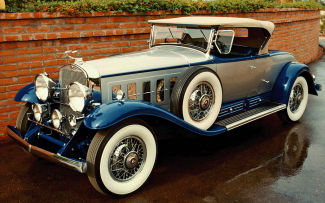In the late 19th and early 20th centuries, a new mode of transportation was emerging that would change the world forever: the automobile. While it's hard to imagine life without cars today, the first automobiles were a far cry from the sleek, high-tech machines we have today. Let's take a look back at the earliest automobiles ever built and how they paved the way for the modern cars we know today.
One of the earliest cars was the Benz Patent Motorcar, invented by German engineer Karl Benz in 1885. The Benz Patent Motorcar was powered by a gasoline engine and had three wheels, with the driver sitting atop the engine in an open-air cabin. The car could travel up to 10 miles per hour, which was incredibly fast for the time.
A few years later, in 1893, American inventor Frank Duryea built what is considered to be the first gasoline-powered automobile in the United States. The Duryea Motor Wagon had four wheels and a two-cylinder engine, and it could travel at a top speed of 20 miles per hour.
Another important player in the early days of the automobile was Henry Ford. In 1903, Ford founded the Ford Motor Company and began producing the Model A, the company's first car. The Model A was followed by the Model T, which would go on to become one of the most iconic cars in history. The Model T was affordable, reliable, and easy to repair, making it a hit with consumers. It was also the first car to be produced using assembly line production, which made it possible to produce cars quickly and efficiently.
As the automobile industry continued to grow, so did the demand for better and more advanced cars. In the 1920s and 1930s, cars became more streamlined and aerodynamic, with features like automatic transmissions and power steering becoming standard. The 1950s saw the rise of the muscle car, with powerful engines and sleek designs that captured the imagination of car enthusiasts around the world.
Today, cars are more advanced than ever before, with features like electric engines, self-driving technology, and even voice-activated assistants. While the earliest automobiles may seem primitive by comparison, they were the foundation upon which the modern automobile industry was built. Without the pioneers like Karl Benz, Frank Duryea, and Henry Ford, we might never have the cars we have today.
